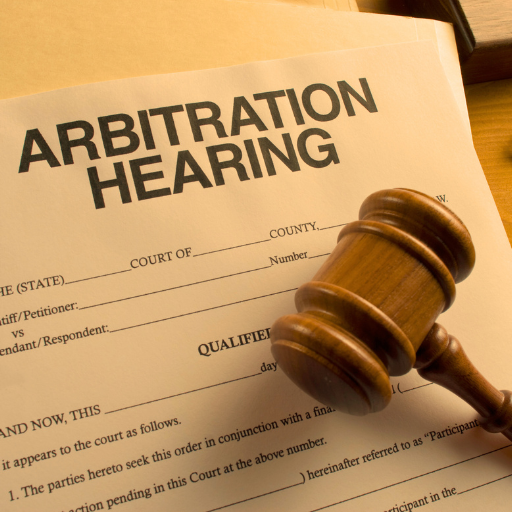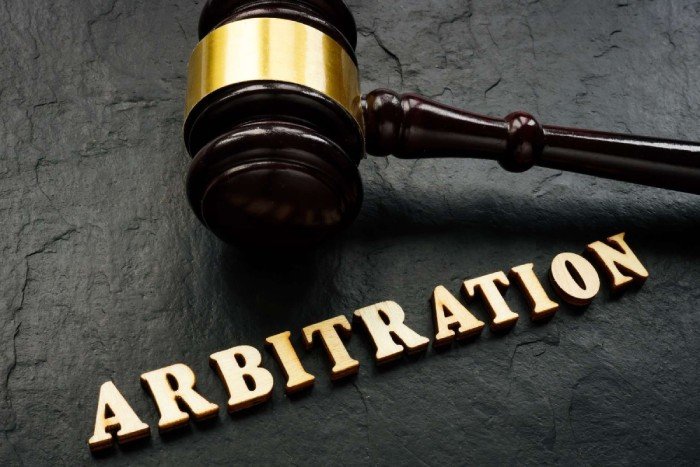
Arbitration Law Firm in Delhi - KNK Legal
Arbitration has become one of the most effective mechanisms for resolving commercial disputes in India and globally. It provides a structured process where parties can resolve matters outside the traditional court system, with confidentiality, flexibility, and enforceability.
KNK Legal has extensive experience in handling arbitration matters in Delhi as well as across India. As one of the recognized litigation law firms in Delhi, we offer strategic, result-driven solutions to resolve complex disputes, both inside and outside the courtroom.
We have successfully handled a range of arbitration matters, both domestic and international, for reputed organizations and individuals. These disputes involved complex issues such as interpretation of contracts, damages, frustration of contracts, and other high-stakes matters with multi-crore implications and significant commercial risks. We have also represented clients across diverse sectors in litigations related to recovery suits, insolvency proceedings, matters before the NCLT, and applications under Sections 34 and 37 of the Arbitration and Conciliation Act, before various courts, High Courts, tribunals, forums, and regulators.
Notably, we also successfully implemented Alternative Dispute Resolution mechanism such as mediation, conciliation /settlement of dispute etc. to safeguard the interest and resources of our client
Understanding Arbitration in India
undergone significant amendments to align with global practices. The law recognizes both domestic and international commercial arbitration, with provisions for institutional and ad hoc proceedings.
Key features of arbitration in India include:
- Confidentiality of proceedings, which is critical in commercial matters.
- Efficiency in dispute resolution compared to lengthy court processes.
- Enforceability of arbitral awards, both in India and internationally under the New York Convention.

Expert Arbitration Lawyers in Delhi - KNK Legal
Arbitration lawyers play a pivotal role in representing parties before arbitral tribunals and ensuring that proceedings are conducted in line with applicable law and procedure. Our team of experienced arbitration lawyers in Delhi is adept at handling both domestic and international arbitration cases.
We represent clients before key arbitration institutions and tribunals, ensuring a seamless approach from drafting arbitration clauses to final award enforcement.
Our Arbitration Expertise Covers:
- Drafting and reviewing arbitration agreements
- Representation in ad-hoc and institutional arbitrations
- Enforcement and challenge of arbitral awards
- Cross-border dispute resolution
- Commercial and contractual dispute arbitration
- International Arbitration
- Mediation and Alternative Dispute Resolution Service
Delhi, being home to the Delhi International Arbitration Centre (DIAC) and other institutional frameworks, serves as a key hub for arbitration proceedings in India.
Get in Touch with Experts
Arbitration FAQs
ADR refers to the collective methods used to settle disputes without litigation. It refers to the entire mechanism where disputes are settle amicably without going through the tedious and costly process of litigation.
Some of the common benefits of ADR against litigation are:
- Saves time and cost
- Greater flexibility to parties to solve their disputes
- Parties are able to maintain good relations between themselves
- Reduces burden on courts
Some of the quite popular modes of settling disputes under ADR are:
- Arbitration: The parties mutually appoint a third person known as arbitrator for the settlement of their matter. In India, Arbitration is governed by the Arbitration and Conciliation Act 1996
- Conciliation: A third person is appointed who aims to bring a common ground for agreement between the parties in dispute.
- Mediation: The parties engage a neutral third person to find a amicable resolution to their disputes. The mediator acts as a mere facilitator and the authority lies with parties whether to accept or refuse the terms of the settlement.
Arbitration is a more legally binding process, wherein an arbitrator is appointed with due consent of the involved parties whose task is to independently analyze the facts of the case and decide the matter. His judgement is legally binding as per the Arbitration and Conciliation Act 1996.
However Conciliation is a relatively informal process wherein the primary motive is to bring the parties to an agreement. Parties are not legally obliged to follow the terms of the judgement except if they enter into a due contract. Further, while Arbitration is more prevalent in the case of business entities, conciliation is found more in family matters and tenancy disputes.
International Perspective:
Recognition of Arbitration in the global domain is primarily based upon:
- Convention on the Recognition and Enforcement of Foreign Arbitral Awards: Popularly known as the New York convention, it came into force on 7th of June 1959. It governs International Arbitration agreements between the signatory parties. At present it has 172 signatory countries. It requires the signatory country to enforce the judgements given by arbitrators part of other signatory country.
- United Nation Commission on International Trade Law: It is a subsidiary body of the UNGA and was established in 1966 to regulate international trade law. It prepared the famous Model law on International Commercial Arbitration , which is followed by many countries to regulate domestic arbitration. India became a part of it in 2022.
Further there are various international courts providing services to settle international disputes between parties. Some of the most common are:
- International Court of Arbitration: Headquartered in Paris, It serves as the leading institution for resolution of International commercial and investment disputes.
- International Arbitration Association: It is the international division of American Arbitration Association, which provides services for settlement of international disputes.
- Permanent Court of Arbitration: Headquartered in Hague, Netherlands, it serves as an intergovernmental organization for settlement of International Disputes.
Indian Perspective:
- In India, Arbitration is backed by the Arbitration and Conciliation Act 1996. It provides the rules and regulation governing Arbitration agreements, appointment of Arbitrator, jurisdiction of the Arbitral Tribunal and gives legal backing to their judgment.
- The first formal statute relating to the subject of arbitration in India was the Indian Arbitration Act, 1899, applicable only to Presidency towns of Madras, Bombay and Calcutta. While the Arbitration Act of 1940 dealt only with domestic arbitrations, post liberation the above said act was enacted following the lines of UNCITRL model law on international commercial arbitration.
Section 8 of the Arbitration and Conciliation Act mandates the courts to refer matter concerning disputes between two parties to Arbitration, provided there is a valid arbitration agreement between them. However, the party filing the application before the court must provide the original or certified copy of the agreement. If the said copy is being retained by the other party, they must file a application before the court to ask the other party to produce the copy.
Yes, this is provided in section 9 of the Arbitration and Conciliation Act. Some of these measures include appointment of guardian in case of unsound or minor persons, taking custody of goods in dispute, temporary injunction etc. It is also being provided here in case of such an order, the proceedings shall commence within 90 days of such order.
Various conditions under which the court may set aside an arbitral awards are given in Section 34 of the Arbitration and Conciliation act. Some of these are:
- A party was under some incapacity
- The arbitration agreement is not valid under the law to which the parties have subjected it to or failing any indication thereon, under the law for the time being in force.
- The party making the application was not given proper notice of the appointment of an arbitrator or of the arbitral proceedings or was otherwise unable to present his case
- The arbitral award deals with a dispute not contemplated by or not falling within the terms of the submission to arbitration
- It contains decisions on matters beyond the scope of the submission to arbitration
Further this section was amended in 2015 to include the conditions under which the award of an international arbitration may be set aside in India. These conditions are:
- The award is vitiated by fraud or corruption
- It is in contravention with the fundamental policy of Indian law
- It is in conflict with basic notions of morality and justice.
